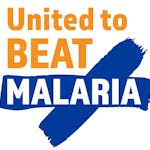Malaria affects the lives of Ecuadorian women in many ways. Now the pandemic is reversing progress against the deadly mosquito-borne disease. When we #UniteforHealth across countries, communities, and sectors, we can beat new challenges like COVID-19, as well as age-old challenges like malaria.
Nancy Piruch used to fear mosquitoes. She knows firsthand just how sick they can make a person. She first contracted malaria when she was 11. She was one of many people who experienced the fever, fatigue, and severe illness the disease causes; for many it can still bring death.
But things have changed since Nancy Piruch was a child. Now, thanks to stronger health systems and access to malaria prevention in her community, malaria is on its way to becoming a thing of the past. Ecuador, a country in the Amazon where malaria has historically been present, represents a regional success story: Malaria elimination efforts led to a reduction of reported cases from 800,000 in 2000 to 241 in 2014, with just one malaria death reported.
Nancy’s kids can access malaria diagnosis and treatment at the local health center. Her community has access to preventive bed nets that help keep them safe from this often deadly disease.
“When one of my kids feels sick, I immediately go to the health center for a doctor’s visit,” she says. “It worries me when they get sick and start to vomit or develop a fever and chills. It takes a toll on our family when the children get sick.”
PUSHING FORWARD ON SUSTAINABLE DEVELOPMENT GOALS PROGRESS
But this progress is fragile. Even before the COVID-19 pandemic, malaria incidence recently increased, with cases reaching spiking to more than 1,800 in 2019.
Nancy is not the only one whose life has been affected by malaria. Lucrecia Vinza was anxiously anticipating the birth of her baby. However, the night before giving birth, she developed a high fever and chills and was rushed to the hospital where doctors told her she couldn’t receive treatment until after delivery. Her daughter was born with malaria and needed swift treatment. Meanwhile, Lucrecia developed severe anemia, requiring multiple blood transfusions to get back on her feet.
Fortunately, she and her daughter made a full recovery. Unfortunately, her story is all too common for women in malaria-endemic countries. Around the world, malaria during pregnancy claims 10,000 maternal deaths each year and up to 200,000 newborn deaths.
The COVID-19 pandemic also continues to threaten the health of vulnerable populations: Existing prevention and treatment programs against other diseases, like malaria, are being disrupted. This could mean up to 300,000 more deaths from malaria in sub-Saharan Africa alone — in just one year.
HOW GOVERNMENTS HELP CITIZENS UNITE FOR HEALTH
Olga Pitiur, a midwife, works to ensure that doesn’t happen in Ecuador. Olga works with the Ministry of Health to strengthen and expand health coverage across the country, particularly in rural and hard-to-reach areas, improving access to quick malaria diagnosis and treatment to significantly reduce the malaria burden on women and children.
“I help mothers have healthy babies. Being malaria-free would give the pregnant women I work with the chance to give birth safely and live a healthy life in our community,” she says. “Every time I see a pregnant woman, I encourage her to sleep under a mosquito bed net and I refer her to the health center so she can get screened and treated if needed. I always hope that one day, those children will become nurses or doctors and will lead and take care of our community.”
Ecuadorians, corporate partners, and UN agencies are stepping up to ensure that progress is protected — and that we create a better world for the next generation, where everyone can get the health care they need. That’s why it’s vital we work together across countries, communities, and sectors to defeat new challenges like COVID-19, as well as age-old challenges like malaria.
We are all safer and stronger when we #UniteforHealth. Support the UN Foundation’s work to deliver health for all.




 View All Blog Posts
View All Blog Posts

